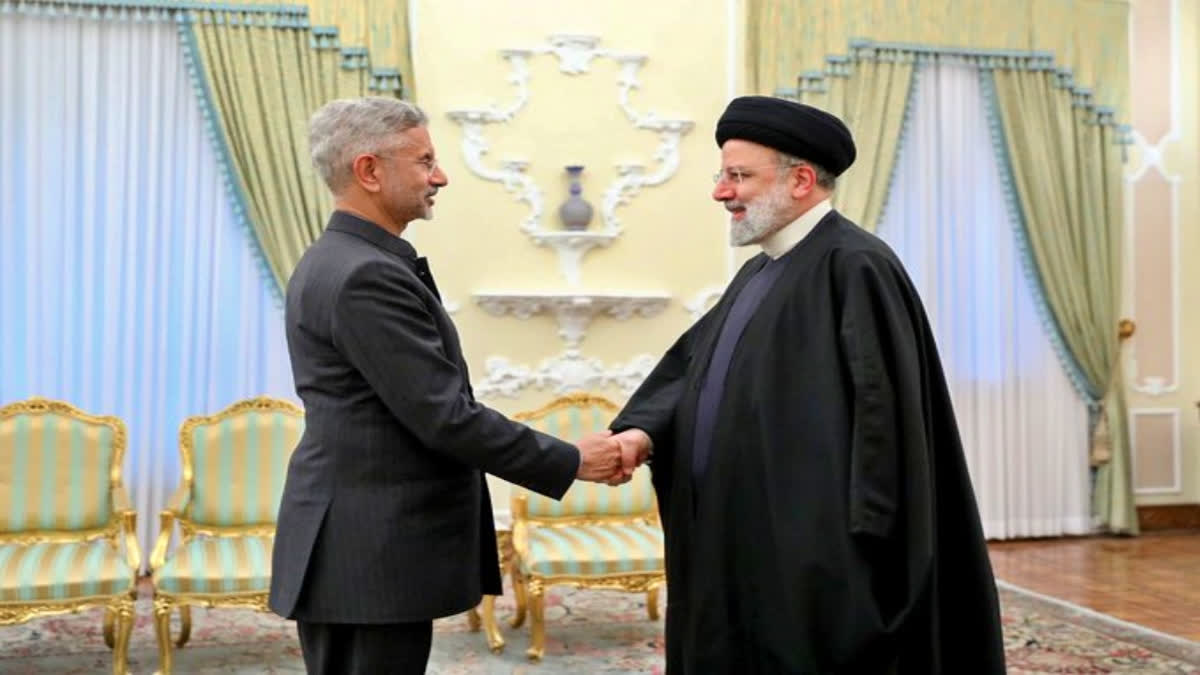New Delhi: Among the several meetings that External Affairs Minister S Jaishankar held during his two-day visit to Iran that concluded on Monday, one was with Iranian Minister for Roads and Urban Development Mehrdad Bazrpash.
During the meeting, discussions were held on expediting work on the International North-South Transport Corridor (INSTC) and the Chabahar port in Iran in which India has a substantial stake.
“Detailed and productive discussion on establishing a long-term cooperation framework with respect to Chabahar port,” Jaishankar posted on X after the meeting. “Also exchanged views on the International North-South Transport Corridor.”
Later, addressing a joint press conference with Iranian Foreign Hossein Amir-Abdollahian, Jaishankar said that regional connectivity has been a critical pillar of India-Iran relations, and figured prominently during the discussions.
“I reiterated India’s interest in benefiting from Iran's unique geographical position to access markets in Central Asia, Afghanistan and Eurasia,”. “We discussed the prospects of energising the International North-South Transport Corridor. In particular, we discussed India’s involvement in the development and operation of the Chabahar port, a joint project with a joint vision of connectivity.”
Jaishankar said that he emphasised India’s commitment to the Chabahar project, and “discussed how we can establish a firm, sustainable and long-term roadmap, for India's continued involvement over the coming years”.
“Given the importance of this project for both nations, I emphasised the need to monitor its progress under the direct supervision of the political leadership,” he added.
According to state-run IRNA news agency, Jaishankar and Bazrlash have reached a final agreement to develop the Chabahar port in southeastern Iran.
“Proposing the formation of a joint transportation committee to expand cooperation between the two countries, Bazrpash said that the formation of this working committee will enable the activation of transit capacities and the use of the North-South corridor,” the IRNA report stated. “The Indian foreign minister, for his part, expressed his country’s readiness for fresh investments in the fields of transportation and transit in Iran.”
During the meeting between Jaishankar and Foreign Minister Amir-Abdollahian, the discussion focused on the long-term framework for India’s involvement with the strategically vital Chabahar port and the INSTC connectivity project.
The long-term framework is expected to replace the original contract which only covers India's operations in the Shahid Beheshti terminal in the Chabahar port and is renewed every year. The new long-term framework will be valid for 10 years and will be automatically extended.
The INSTC is a 7,200-km-long multi-mode network of ship, rail, and road routes for moving freight. India, Iran, and Russia had in September 2000 signed the INSTC agreement to build a corridor to provide the shortest multi-model transportation route linking the Indian Ocean and the Persian Gulf to the Caspian Sea via Iran and St Petersburg. From St Petersburg, North Europe is within easy reach via Russia.
The estimated capacity of the corridor is 20-30 million tonnes of goods per year. The route primarily involves moving freight from India, Iran, Azerbaijan, and Russia via ship, rail, and road. The objective of the corridor is to increase trade connectivity between major cities such as Mumbai, Moscow, Tehran, Baku, Bandar Abbas, Astrakhan and Bandar Anzali.
So, why has the INSTC come into focus?
